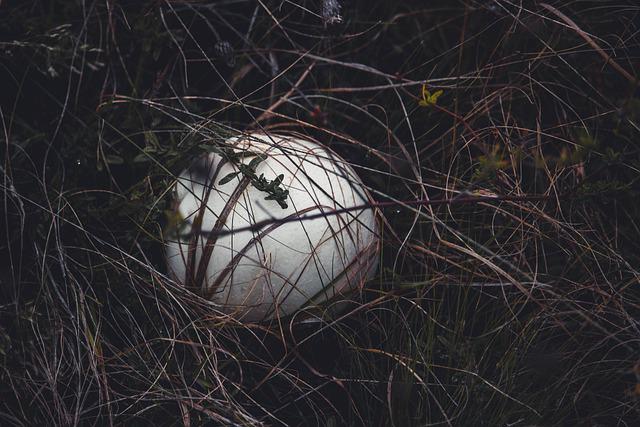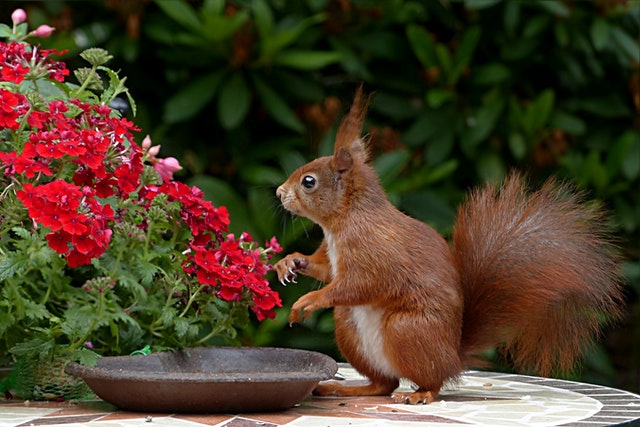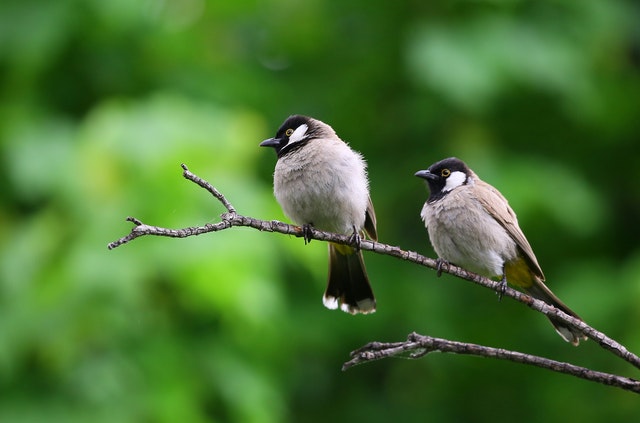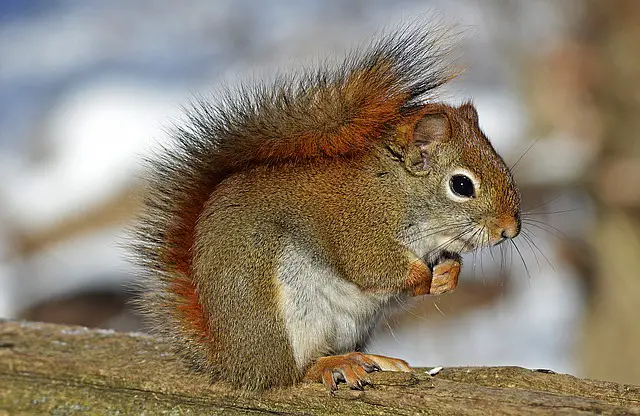Will mothballs keep squirrels out of flower pots is a top searched query. Despite their fuzzy and cuddly appearance, squirrels can be downright destructive to outdoor gardens.
Their small and precise claws can dig up flowers, vegetables, and other plants in record time, leaving your previously manicured flower beds a scene of dirt-strewn chaos.
But how can you repel squirrels? If you are like many, you’ve researched all kinds of ways to keep squirrels away from your flowers with mixed results. But what about mothballs, a pest remedy that some swear by? Will mothballs keep squirrels out of flowerpots?
The short answer is yes. Squirrels detest the smell of mothballs, and you can even mix mothballs with other smells that squirrels find unpleasant, such as chili or cayenne pepper.
It’s worth noting that while mothballs can be effective in repelling squirrels from your flower pots, they should be used with caution as they contain naphthalene or paradichlorobenzene, which can be toxic to pets and humans if ingested or inhaled in large amounts.
The rest of this article will tell you why and how mothballs are used to repel squirrels, how to best use mothballs in your flowerpots, and even how to make a DIY mothball canister for using in your gardens.
Will Mothballs Keep Squirrels out of Flower Pots

Yes. The smell of mothballs is highly unpleasant to squirrels and will keep these furry pests far from your flowerpots.
How to Make a DIY Mothball Container to Use in Your Garden
Because of their chemical nature and their shape, which can resemble candy, it can be dangerous to use mothballs in your home or garden if you have pets or young children.
Using a DIY mothball container can help by sealing in the mothballs and making them a little less tempting – but these containers should in no way substitute proper supervision over children and pets in your garden.
You will need:
- Plastic condiment cups (with lids)
- Glue gun
- Glue sticks
- Mothballs
- Cayenne pepper
- Skewers (wood or bamboo)
- Scotch tape
- Hole punch
Step 1: Using the hole punch, punch holes along the outer sides of the condiment cups. This will cause the odor of the mothballs to escape, which will repel the squirrels.
Step 2: Using the glue gun, glue the skewers to the bottoms of the condiment cups. Hold the skewers upright as the glue sets.
Step 3: Take the prepared containers outside to your garden. Adding the ingredients is best done outdoors, as it will be smelly and a little messy.
Step 4: Add 3 – 4 mothballs to each container. Then, sprinkle with a liberal amount of cayenne pepper in with the mothballs.
Step 5: Tape the lids onto the condiment containers.
Step 6: Place the containers throughout your garden, using the skewer to stick them into the soil. Place 1 container per every 8 – 10 feet near the plants most affected by the squirrels, including in the soil of flowerpots. And you’re done! Your success will answer the question, will mothballs keep squirrels out of flowerpots?
Alternatively, you could fill a few old socks with mothballs and place them throughout the garden.
Why do Squirrels Destroy Gardens and Flowerpots?

Because squirrels have the natural tendency to dig to store their food, the soil in your gardens and flowerpots is perfect for digging because it is looser than the hard, packed, rocky soil of their natural habitat.
Other Methods of Keeping Squirrels out of Your Garden
While mothballs are a great way to deter squirrels, they are quite smelly and often not safe to use around pets and young children. They are also a chemical rather than a natural pest repellent, which some may view as problematic. Fortunately, there are a few other ways to keep squirrels from your garden using natural methods.
1. Sonic Deterrents
You can purchase devices that emit high-pitched frequencies too high for humans to hear. They irritate squirrels and keep them far from your garden. The only downside is that you can’t use sonic deterrents if you are a pet owner, as dogs and cats also hear these frequencies and become distressed by them.
2. Natural Squirrel Repellents
Cayenne pepper, chopped onions, garlic, jalapeno, and black pepper are all great ingredients with which you can make a custom squirrel spray. The mixture won’t kill the squirrels but will create a strong smell that will keep them away.
Mix these ingredients together (the amount of each doesn’t matter much), bring to a boil, then strain the juices through a cheesecloth and place the liquid into a spray bottle. Spray the liquid on and around your flowerpots to keep the squirrels away.
3. Blood Meal / Bone Meal Fertilizer
This fertilizer works as a double benefit – not only does it keep squirrels and other pests out of your garden, but it is also a wonderful, nutrient-rich fertilizer that greatly benefits your plants. You can buy blood meal or bone meal fertilizer at any gardening supply store and mix it in with your regular soil.
4. Attract Birds to your Garden

Squirrels hate birds, and by having birds as a frequent visitor to your backyard, squirrels will stay away. Birds will also eat slugs, snails, beetles, and other insect pests in your garden.
To attract birds to your garden, set up birdfeeders and birdbaths throughout. Make sure to fill your birdfeeders regularly, as some birds might go after your vegetables or flower seeds if the birdfeeder is empty.
Keep in mind that squirrels will try at all costs to raid your birdfeeders for the tasty seeds and nuts, but there are fortunately many squirrel-proof birdfeeders that you can buy online or in many home and garden stores.
5. Maintain your Yard
Keeping your backyard and gardens tidy not only discourages squirrels, but other pests, as well. Destructive insects such as squash beetles love to winter beneath dried or decaying vegetation, which helps them breed in large numbers come spring.
Sweep away all the loose berries, acorns, and decaying fruit and veggies from your yard so that the squirrels don’t have food to bury in the first place. Squirrels tend to store their food near the place they found it, so this will send them to find their sustenance elsewhere.
6. Plant Companion Plants
Some plants, including both flowers and herbs, have natural odors that repel squirrels and other pests. Some of the most common companion plants are:
- Peppermint
- Garlic
- Marigolds
- Hyacinths
- Jonquils
- Alliums
- Lily of the Valley
- Daffodils
- Snow Crocus
View a previous post: Why Is My Cactus Leaning
Summary
Will mothballs keep squirrels out of flowerpots? Yes. Squirrels hate the smell of mothballs. When you incorporate mothballs into your garden as a natural pest repellent, the smell will make the furry pests steer clear of your flowerpots.
Make DIY mothball canisters to place around your garden, or simply fill old socks with mothballs and place them near the plants most affected by squirrels.
There are also other ways of keeping squirrels away if you don’t feel good about using chemicals in pest control. Natural plants such as peppermint and garlic are sure to keep squirrels and other pests away, and you can make a natural squirrel repellent by using any mixture of cayenne pepper, jalapeno, onion, garlic, and black pepper.
Frequently Asked Questions
Can I put mothballs in my flowerpots?
While you can drop mothballs directly on the topsoil of your flowerpots, this can be dangerous if you have pets or young children who might mistake them for candy. The best way is to build a DIY mothball container and place it in your flowerpot.
What keeps squirrels away from flowerpots?
Mothballs and other smelly substances such as blood or bone meal, peppermint, onions, garlic, and cayenne pepper are the best methods for keeping squirrels away from your flowerpots.
Are mothballs a natural pest repellent?
No. Mothballs contain chemicals, which makes them a chemical repellent rather than a natural one.

Hey, I’m Lisa and I’ve been an avid gardener for over 30 years. I love writing, talking and living in the garden! Feel free to connect with me on my socials below

